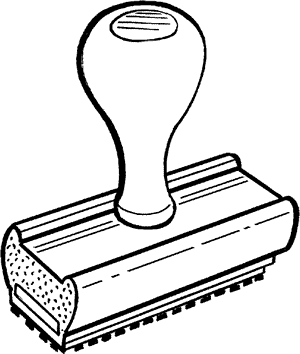Power of Attorney

There comes a time when we will have to face THE QUESTION – “who will decide for me?” Most people have an idea of who will be taking care of them in their old age or make financial decisions for them if they are not able to because they are out of town or just not in a position to make crucial financial, legal, or healthcare decisions. However, many people assume that a certain person will take charge and do not bother putting it in writing.
The power of attorney is a document that grants persons the authority to make legal decisions for another person or the principal. The person granted the authority to make legal decisions for the principal is the agent, who could be your attorney or a family member, friend, or anyone you deem trustworthy. The agent has a fiduciary duty solely to the principal. Loyalty, time constraints, organizational abilities, and conflicts of interests should be some of the main factors considered in appointing an agent.
In order to create a legally binding power of POA, the principal must have sufficient mental capacity at the time the document is drafted in order to consent to it. Further, two witnesses, who are of age and is not the agent, must be present when the principal signs the power of attorney form.
The power of attorney is typically used in the event of the principal’s illness or disability, or when the principal is absent to sign financial documents. POAs will have directives on what the agent can do and under what circumstance. A general POA authorizes an agent to act only if the principal has full capacity. By nature, general POAs are limited to only the time period during the principal is of sound mind. Upon incapacity, the general POA automatically terminates. However, a durable POA grants agents authority to handle the principal’s affairs upon incapacity. Durable POAs should specifically state that the agent’s power does not end when the principal becomes incapacitated.
Power of attorneys are created by state laws, and all state laws accept some form of durable POA. While procedures for creating a POA may vary from state to state, the following applies to all states:
- Write it. Some states do accept oral POA grants. However, verbal instructions are not reliable and can create problems over details in the future. Spelling it out will help to avoid confusion, arguments, and headaches.
- Properly format it. Many variations of POA forms exist. When preparing a POA, decide which powers you wish to grant and draft it specific to that. Further, you must also satisfy the requirements of your state.
- Clarify it. POAs can be broad or limited. Each power granted or delegated must be clearly stated, even if the Principal is granting broad or general POA.
- Specify it. Typically, POAs terminate upon the principal’s incapacitation. However, if the principal designates the POA granted as durable, the agent’s POA will last for the principal’s lifetime (unless the principal revokes it).
- Notarize it. Most states require POAs to be notarized to give it affect. Some states do not have this requirement, but it is much easier for the agent if it is signed and sealed by a notary.
- Record it. Recording is not required for all POAs in order to be legal. However, recording is standard practice and it creates a record of its existence.
- File it. Many states require certain POAs to be filed with the court / agency before becoming valid.
Durable Power of Attorney
A durable POA enables the principal to appoint an agent to handle specific health, legal, and financial responsibilities. There are 2 types of POA:
- Healthcare POA / POA for healthcare directives / healthcare proxy – agent authorized to make healthcare decisions
- Financial POA / POA for financial directives – agent authorized to make legal and financial decisions
Durable POAs can become effective immediately or delayed to go into effect upon the principal’s incapacity.
A durable POA is essential. Without it, your family, friends, and loved ones will be prevented from making crucial end-of-life decisions. Anyone who wishes to undertake these obligations will have to go to court to become officially appointed as the principal’s guardian.
It is essential to choose an agent wisely and discuss the scope of his responsibility. The principal may revise, revoke, or destroy the durable POA anytime while he is competent. However, upon incapacitation, it remains in effect until the principal dies, at which time, the document may not be altered. Establishing a durable POA prevents guardianship proceedings, which will save you and your loved ones time, expense, and headache, and protect your privacy. A guardianship proceeding is a proceeding in which the court appoints someone to act for you if you lose capacity and no POA is in place. Depending on what powers are given to the agent, the agent will act on your behalf and make financial and medical decisions to ensure your well-being and care, including making real estate or banking transactions, paying your bills, and selling assets to pay for your care.
The power of attorney grants much authority and responsibility to the agent. It is imperative that you choose someone that is trustworthy and capable to serve as your agent. This person will act with the same legal authority you would have, so any mistakes by the agent will be difficult, or in some cases impossible, to correct. Worse, since the agent has access to you bank accounts and the authority to make withdrawals, if granted to the wrong person, consequences could be irreparable and grave.